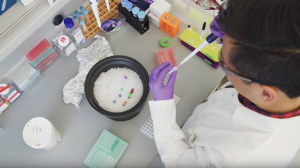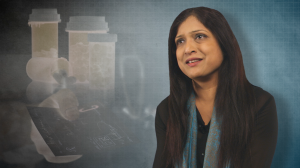NEW YORK (Reuters Health) – Several poster presentations at the American College of Obstetrics & Gynecology’s annual clinical meeting in Chicago today focused on improving symptoms in menopausal women.
For example, Dr. Fernand Labrie of the Laval University Hospital Research Center in Quebec City, Canada and colleagues reported on a phase III trial in 216 postmenopausal women who applied either Prasterone ovules (dehydroepiandrosterone) or placebo intravaginally for 12 weeks. Prasterone was tested in three doses: 0.25%, 0.5%, and 1.0%.
Women in all three treatment arms had “highly statistically and clinically significant beneficial changes” as early as two weeks after the start of treatment, in percent of vaginal parabasal and superficial cells and pH, and also “in the most bothersome symptom of vaginal atrophy,” according to the meeting abstract.
Furthermore, in four domains of sexual function – desire, arousal, orgasm, and dryness during intercourse – questionnaire responses showed significant time- and dose-dependent improvements.
Local placement of the ovules, say the researchers, “causes a rapid and efficient reversal of the symptoms and signs of vaginal atrophy….This approach avoids the fear of systemic effects.”
At the Beth Israel Deaconess Medical Center and Brigham and Women’s Hospital, both in Boston, Dr. Nina Carroll and colleagues conducted a post-hoc analysis of data from a phase III trial of estradiol gel 0.1% in postmenopausal women.
“Estradiol gel 0.1% for 12 weeks increased the estradiol/estrone ratio in postmenopausal women to premenopausal levels,” the researchers report.
The higher estradiol/estrone ratio was associated with significantly fewer moderate-to-severe vasomotor symptoms. In addition, treatment with the gel also increased levels of unconjugated estradiol levels, which were “significantly inversely associated” with moderate-to-severe vasomotor symptoms, according to the abstract.
“Reestablishment of physiologic estradiol/estrone ratio to premenopausal ratios and increased unconjugated estradiol following treatment with estradiol gel 1.0% are significantly associated with reduced frequency and severity of moderate-to-severe vasomotor symptoms” of menopause, the researchers conclude.




